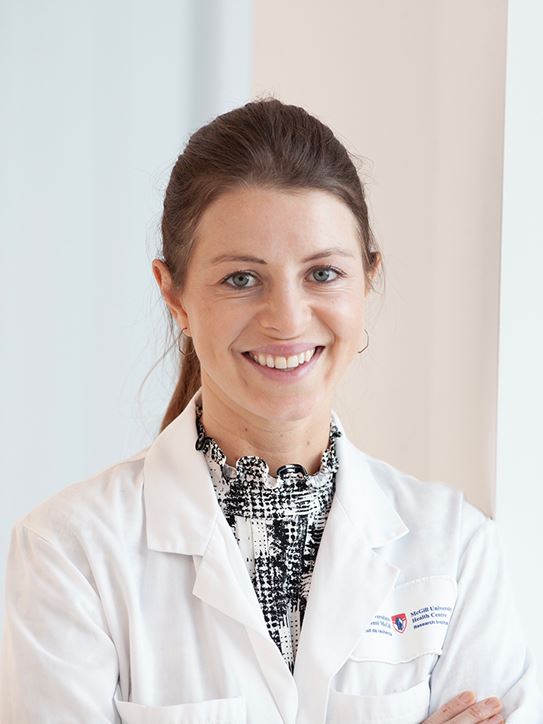What if a simple blood test could tell your doctor everything they needed to know to personalize your cancer treatment?
That’s the goal Dr Julia Burnier, a CCS-funded researcher at McGill University, is working towards with a new type of test called a liquid biopsy.

“We are in an era of targeted therapies – moving away from a one-size-fits-all approach and moving towards giving the right treatment at the right time,” says Dr Burnier, whose work aims to offer better ways of deciding what treatments are needed when.
“One of the challenges is that cancer is constantly evolving and changing. Traditional biopsies are invasive, costly and only give us a static view of a patient’s disease. Liquid biopsy fills this gap – offering a non-invasive alternative that can be repeated over time.”
Traditional biopsies involve surgery to remove pieces of tissue from the tumour to analyze. Liquid biopsies use samples of blood, saliva or urine instead. Because these samples are easier to collect, the procedure is faster and more comfortable. It carries much less risk because there’s no need for surgery.
“Using these samples, we can detect cancer-related biomarkers like cancer cells or the DNA that comes from those cells,” Dr Burnier explains. “This approach enables earlier detection, real-time monitoring of treatment response and better understanding of how cancer changes over time. All of this can lead to more personalized and effective care.”
Dr Burnier’s goal is to make liquid biopsies better by understanding how tumour DNA changes in response to treatment. That way, people who are in treatment for cancer can have regular blood tests to check their progress and change treatments if needed. With tissue biopsies, this is difficult – sometimes even impossible.

“As a cancer patient who had to undergo multiple biopsies, the idea of a painless liquid biopsy with zero downtime for healing and zero chance of infection or complications would be a game changer for so many patients,” says Jennifer Coish, a patient advocate and CCS advocacy volunteer. “All too often, patients have to wait multiple weeks for the results to come back on their samples. By doing liquid biopsies, we could save time, money and invasive procedures for cancer patients who already face enough challenges in today’s healthcare system.”
Thanks to Dr Burnier and other researchers in the field, we can now detect tiny fragments of tumour DNA more sensitively than ever. “This allows us to monitor disease over time using highly sensitive approaches,” Dr Burnier explains. “For example, after a patient finishes treatment, we can now check if they have what we call molecular disease, tiny evidence of cancer that would not be detected on imaging.”
Detecting molecular disease early means it can be treated before it progresses.
“By understanding disease at this molecular level in real time, we can customize – or personalize – treatment,” Dr Burnier explains. “This means we give only the treatment needed when it’s needed. This will improve care but also have significant impact on quality of life of those living with cancer.”
Help fund world-leading cancer research
With almost half of all Canadians expected to face a cancer diagnosis in their lifetime, the urgency for funding is at an all-time high. Research holds the key to transforming the future of cancer.
If everyone reading this joins our monthly donor community today, we can keep up the momentum for life-changing discoveries to better detect, diagnose and treat all types of cancer.
Please donate today because every contribution counts.
